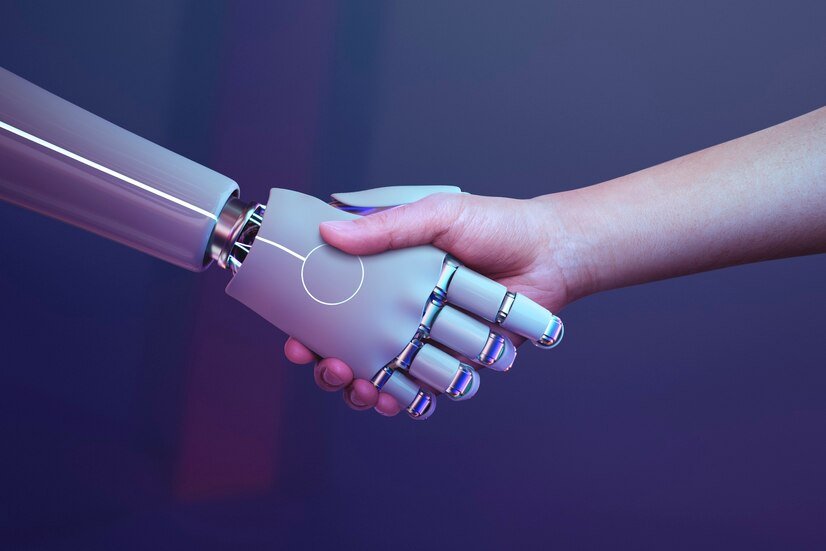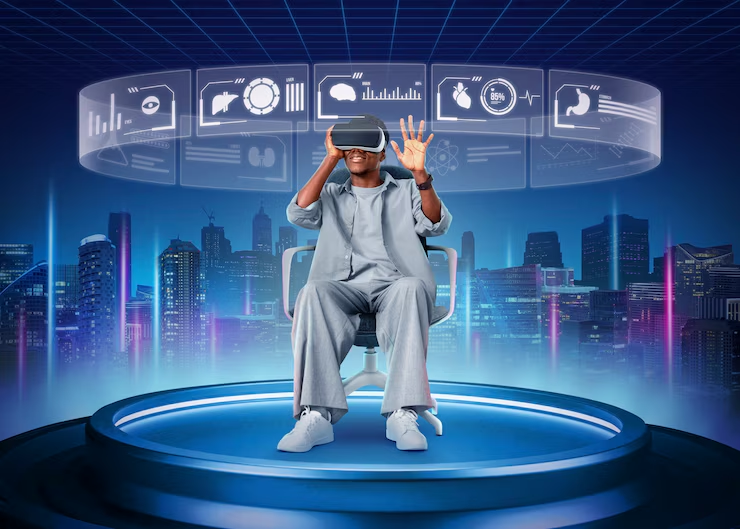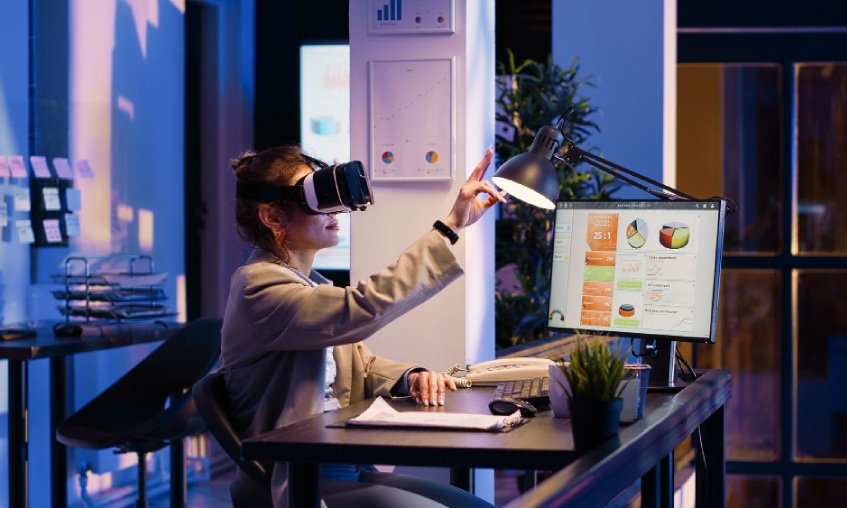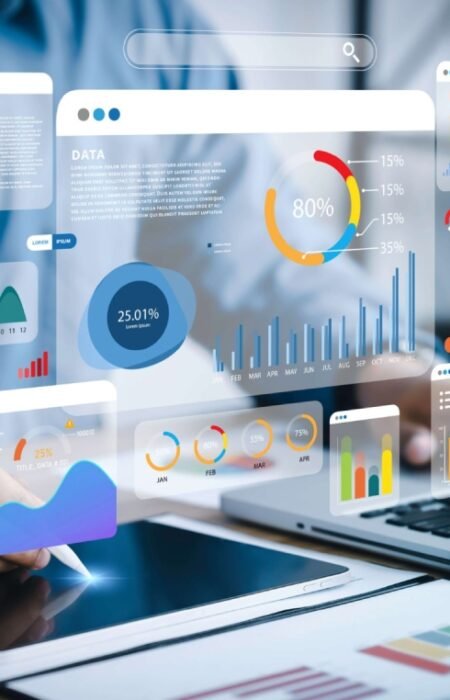As we step into 2025, the pace of technological advancements continues to accelerate. Artificial Intelligence (AI) remains at the forefront of this transformation, but it is far from the only driving force. From advancements in quantum computing to the evolution of autonomous systems, the tech trends emerging now are not just changing industries but are poised to revolutionize how we live and work. Let’s explore the key tech trends that will shape 2025 and beyond.
1. The Rise of Artificial Intelligence: More Than Just Automation

AI has already established itself as an indispensable tool for businesses across industries. In 2025, we are witnessing a move beyond traditional automation into the realm of advanced AI systems capable of sophisticated decision-making, creativity, and problem-solving. Machine learning algorithms will continue to evolve, creating AI models that understand context, make predictions with more accuracy, and even interact more naturally with humans.
AI-driven applications such as natural language processing (NLP) and predictive analytics will become more integrated into customer service, healthcare, finance, and more. We can expect to see personalized experiences across platforms powered by AI that adapts to individual behaviors and preferences in real-time.
Key Areas AI Will Impact in 2025:
- Healthcare: AI will play an increasingly pivotal role in diagnostics, personalized treatment plans, and drug development. AI-driven algorithms are expected to help medical professionals make faster, more accurate decisions, saving lives and reducing errors.
- Finance: AI’s role in predictive modeling will transform how businesses approach risk assessment, fraud detection, and trading strategies. Expect more personalized financial advice through AI-powered chatbots and platforms.
- Workplace Automation: The AI-powered workforce will not only streamline repetitive tasks but will also assist in higher-level problem-solving, driving innovation in industries like marketing, retail, and supply chain management.
2. Quantum Computing: A Game-Changer for Problem Solving
While AI may dominate the tech landscape, quantum computing is quietly emerging as a game-changer for problem-solving in 2025. Unlike classical computers, which process information in bits (either 0 or 1), quantum computers use qubits, allowing them to process information in multiple states simultaneously. This ability to handle complex calculations will have profound implications for industries such as materials science, pharmaceuticals, and cryptography.
By 2025, major companies and governments will likely have made significant breakthroughs in quantum hardware and software. Quantum computing could unlock new realms of research and development, accelerating advancements in areas ranging from drug discovery to weather forecasting, where traditional computing systems fall short.
Key Areas Quantum Computing Will Impact:
- Drug Discovery: With quantum simulations, researchers can model molecular interactions at an unprecedented scale, speeding up the drug development process and making personalized medicine more effective.
- Cryptography: As quantum computers become more powerful, current encryption systems will need to be updated to protect sensitive information. This will spur a new era of quantum-resistant encryption techniques.
- AI and Machine Learning: Quantum computing could accelerate AI training, allowing for faster and more efficient machine learning processes. This would result in more powerful AI systems capable of solving problems once deemed impossible.
3. 5G and Beyond: Enabling the Future of Connectivity

5G is the next generation of mobile connectivity, and by 2025, its adoption will be widespread, enabling faster speeds, lower latency, and more reliable connections. The hyperconnectivity enabled by 5G will unleash a wave of new technologies and innovations, especially in the fields of smart cities, autonomous vehicles, and the Internet of Things (IoT).
With 5G, industries will benefit from enhanced data throughput, allowing for real-time communication between machines, devices, and people. This will drive advancements in telemedicine, augmented reality (AR), and virtual reality (VR), opening the door to immersive experiences that blend the digital and physical worlds.
Key Areas 5G Will Impact:
- Smart Cities: The data throughput offered by 5G will enable real-time monitoring of urban infrastructure, traffic management, and energy usage. This will lead to smarter, more sustainable cities with improved quality of life.
- Autonomous Vehicles: Self-driving cars rely on fast and reliable communication with their surroundings. 5G will be essential in making these vehicles a reality, providing the low-latency communication needed for safe navigation.
- AR and VR: With the ability to stream high-quality video and interactive content with minimal delay, 5G will enhance the development and use of augmented and virtual reality applications across gaming, education, and professional training.
4. Blockchain and Decentralization: Redefining Trust in the Digital Age
While blockchain technology initially gained prominence through cryptocurrency, its potential to transform industries extends far beyond digital currencies. By 2025, blockchain will play a key role in enhancing transparency, security, and trust in areas like supply chains, voting systems, and intellectual property management.
Decentralized applications (dApps) will become more common, and enterprises will begin to adopt blockchain for more use cases, from secure digital identity management to streamlining cross-border payments.
Key Areas Blockchain Will Impact:
- Supply Chain Transparency: Blockchain’s immutable ledger system ensures the authenticity and transparency of goods, enabling businesses to track products from creation to delivery, reducing fraud, and improving consumer trust.
- Voting Systems: Blockchain can provide tamper-proof voting systems that ensure election integrity, making it an ideal solution for secure, transparent digital elections.
- Intellectual Property (IP): Blockchain can streamline the management and licensing of intellectual property, ensuring that creators and innovators are compensated fairly while reducing IP theft.
5. The Metaverse: A New Digital Frontier

By 2025, the Metaverse will be a fully realized and immersive virtual world where individuals can interact, socialize, work, and even create entire businesses. With advancements in AR, VR, and AI, the Metaverse will offer an unprecedented level of interactivity, enabling users to experience a fully digitized environment that mirrors the physical world.
The Metaverse will revolutionize industries such as education, real estate, and entertainment, offering new ways to engage with content and collaborate. The rise of decentralized digital spaces will also spark the development of virtual economies, with NFTs and virtual assets becoming integral components of the Metaverse.
Key Areas the Metaverse Will Impact:
- Education and Training: Virtual classrooms and immersive training environments will allow students and professionals to learn in dynamic, hands-on ways that are not possible with traditional methods.
- Real Estate: Virtual real estate will become a booming market, as users invest in digital land, build virtual properties, and create experiences in the Metaverse.
- Entertainment: The Metaverse will offer new avenues for immersive entertainment, where users can attend concerts, watch movies, and experience art in ways that extend beyond traditional media.
6. Sustainability Tech: Innovations for a Greener Future
In 2025, sustainability will be at the core of innovation, as companies and governments focus on leveraging technology to address climate change and reduce carbon footprints. From clean energy solutions powered by AI and IoT to sustainable agriculture technologies, sustainability will drive investments and new business models.
The intersection of AI and green technologies will help us optimize energy consumption, improve waste management, and accelerate the transition to renewable energy sources. AI-powered solutions can also optimize farming practices, reduce food waste, and help create more sustainable urban environments.
Key Areas Sustainability Tech Will Impact:
- Energy: Smart grids and AI-powered energy management systems will optimize the use of renewable energy, improve energy efficiency, and contribute to the reduction of greenhouse gas emissions.
- Agriculture: Technologies like AI, IoT, and drones will enable precision farming, reducing waste and improving crop yields, which will be essential for feeding a growing global population sustainably.
Conclusion: A New Era of Technological Innovation
As we look toward 2025, the convergence of AI, quantum computing, 5G, blockchain, and sustainability technologies will define the next era of technological innovation. From enhancing everyday life to solving complex global challenges, these trends will shape the future of industries, economies, and societies at large. Staying ahead of these trends will be critical for businesses and individuals who want to thrive in a rapidly changing digital landscape.
The future is not just about keeping up with emerging technologies; it’s about harnessing their potential to create a more efficient, sustainable, and interconnected world. The tech trends shaping 2025 are just the beginning of what promises to be a truly transformative decade.








No Comment! Be the first one.